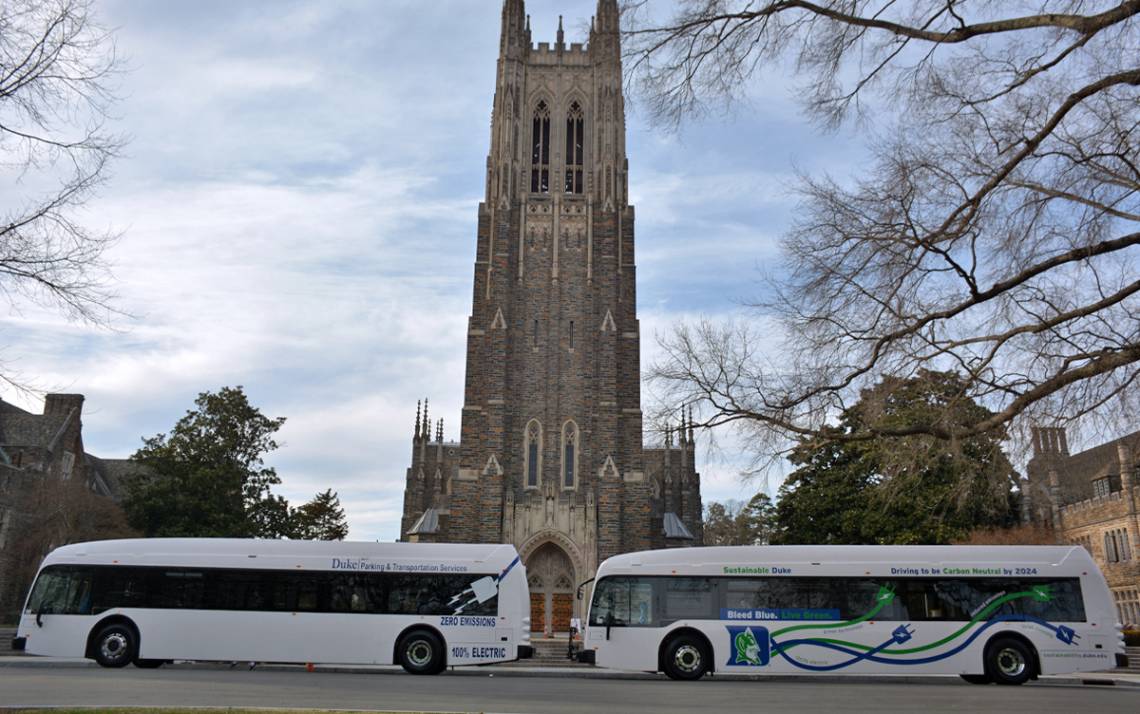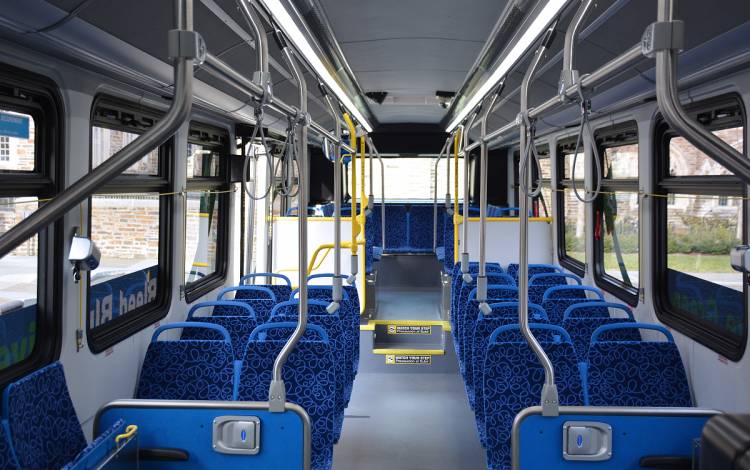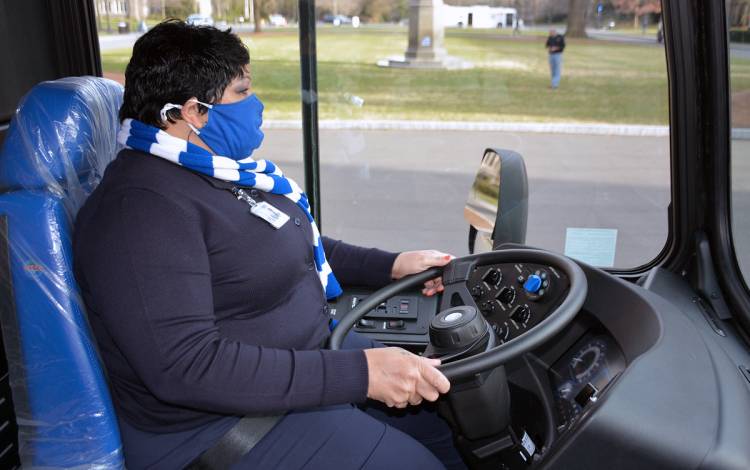New Electric Buses Roll on Campus Roads
Duke adds two 40-foot electric buses to its campus fleet; the buses are expected to go into service next week

Two new fully-electric buses have arrived and are expected to begin operating on campus next week as Duke takes another sustainable step toward carbon neutrality by 2024.
Each 40-foot Proterra ZX5 bus carries up to 40 seated passengers and operates for about 200 miles on a single charge. The battery-electric buses release zero tailpipe emissions, require no oil changes and use no liquid fuels.
 The buses will run the C1 route, connecting East and West campuses. One bus serves as a mobile billboard for Duke’s commitment to carbon neutrality, featuring the Sustainable Duke logo, images of electric cords and messages like “green technology,” “reduced emissions” and “100% electric.” The other bus displays a message that it is 100 percent electric.
The buses will run the C1 route, connecting East and West campuses. One bus serves as a mobile billboard for Duke’s commitment to carbon neutrality, featuring the Sustainable Duke logo, images of electric cords and messages like “green technology,” “reduced emissions” and “100% electric.” The other bus displays a message that it is 100 percent electric.
“This is a first we’re very proud of,” said Carl DePinto, director of Duke Parking and Transportation Services. “We’re happy to do our part in helping Duke become climate neutral.”
Duke currently operates 24 buses that run on hybrid-diesel or diesel fuel. The new battery-powered electric buses will replace two diesel vehicles, saving Duke on maintenance and fuel, DePinto said.
 Since initiating the University's climate commitment in 2007, Duke has reduced the campus greenhouse gas footprint by 34 percent. Tavey Capps, director of Sustainable Duke, said Duke’s transportation emissions dropped 16 percent since 2007, a decline she attributes to many employees working remotely because of COVID-19.
Since initiating the University's climate commitment in 2007, Duke has reduced the campus greenhouse gas footprint by 34 percent. Tavey Capps, director of Sustainable Duke, said Duke’s transportation emissions dropped 16 percent since 2007, a decline she attributes to many employees working remotely because of COVID-19.
“It’s exciting to see the infrastructure of the buses continue to reflect Duke’s commitment to sustainability,” Capps said. “They are a very visible reminder to the campus community that even small changes can add up to a large impact.”
As part of the commitment to health safety, the buses will be sanitized daily and operate at 50 percent passenger capacity. Seats will be blocked off to ensure physical distancing.
 Duke Bus Operator Robin Rawls said the quiet bus stops, turns and accelerates smoother than any other vehicle she has driven.
Duke Bus Operator Robin Rawls said the quiet bus stops, turns and accelerates smoother than any other vehicle she has driven.
The biggest change for Rawls, who took the electric bus on a test drive this week, is adjusting to the silence of the vehicle.
"You get used to all the groans, squeaks and engine noises a diesel bus makes," said Rawls, transportation supervisor for Duke Parking & Transportation. "You don't get much sound with the electric buses. It feels like you're gliding."
Got something you would like for us to cover? Send ideas, shout-outs and photographs through our story idea form or write working@duke.edu.